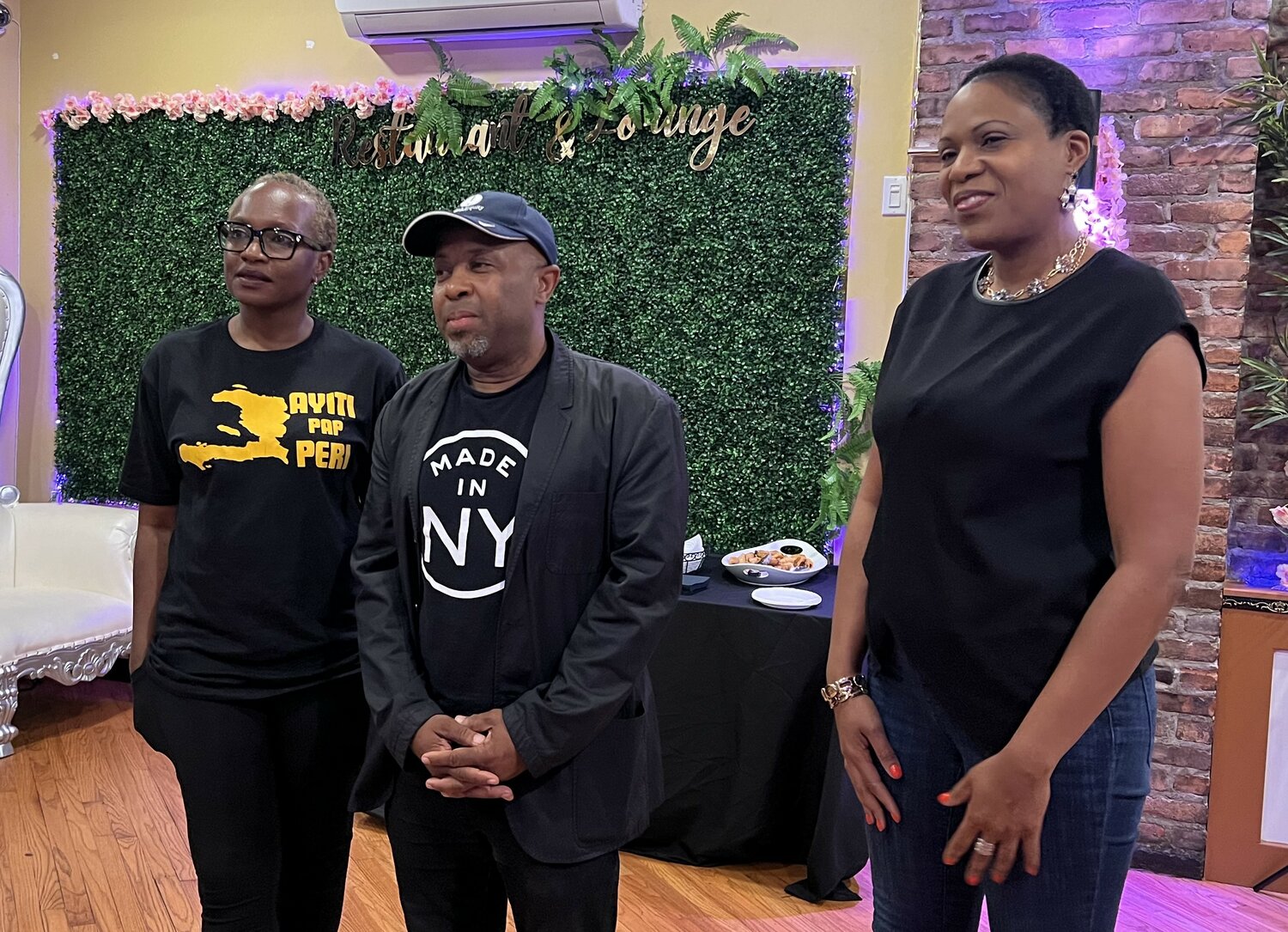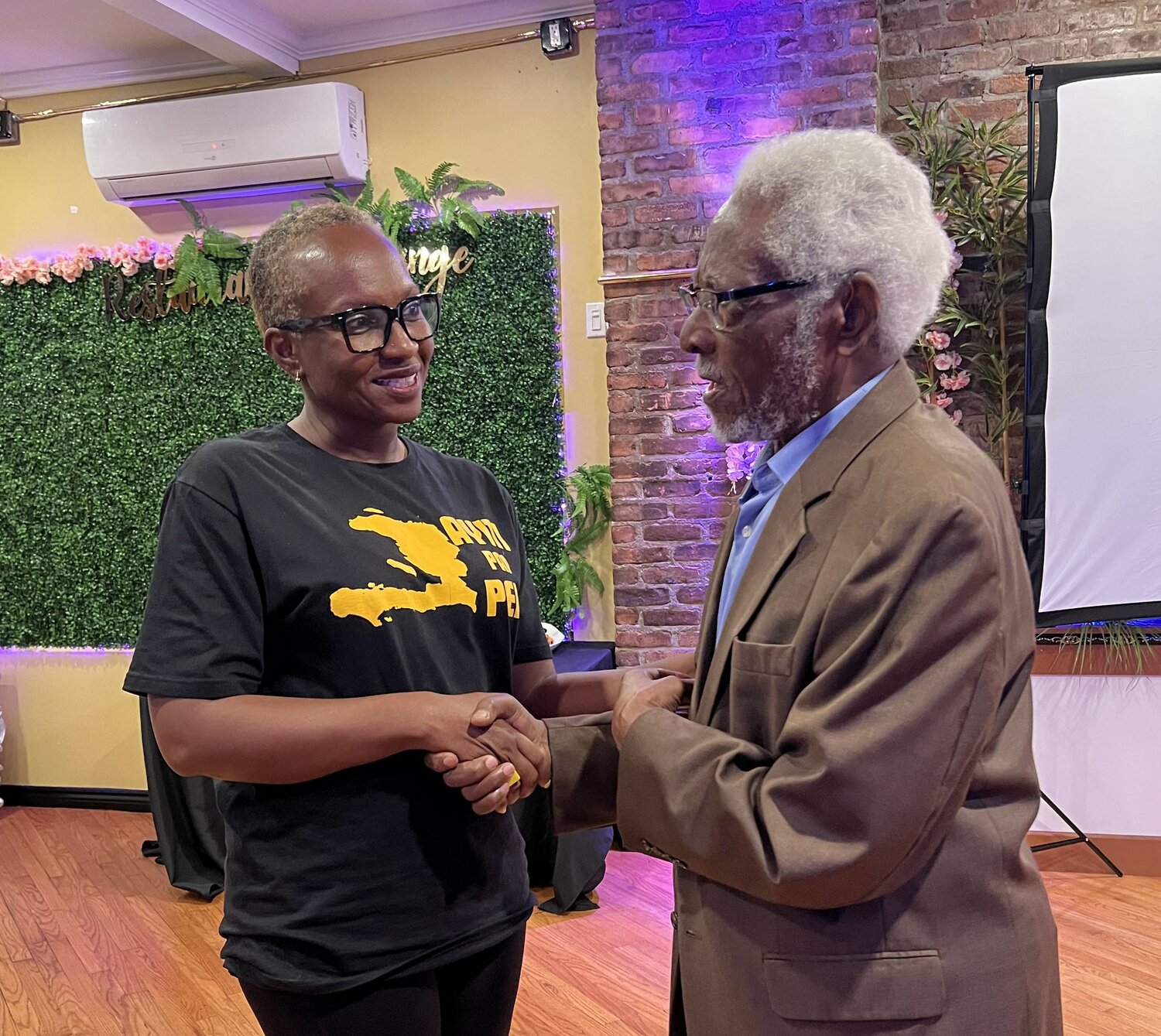‘Haiti will not perish’
New documentary shows faith, resiliency in Haiti
With poignant music, haunting images and stark honesty, a new documentary, “Ayiti Pap Peri,” bears witness to the courageous love of Haitians — including a large number in Uniondale — for their homeland.
The film’s title means “Haiti will not perish.” It is the third documentary about Haiti by its award-winning producer, Cassandre Thrasybule.
“‘Ayiti Pap Peri’ is a film to try to change the narrative about Haiti,” Thrasybule said.
The Caribbean nation of 11.4 million people is known to outsiders for poverty, crime, political upheavals and devastating earthquakes. The documentary acknowledges its difficulties, but refutes the negative perceptions by showing effective remedies developed by Haitians themselves.
Thrasybule began work on the film in 2019. At the time, Haiti was still recovering from the 7.2-magnitude quake that struck on January 12, 2010, demolishing many structures in Haiti’s capital, Port-au-Prince, and killing as many as 300,000 people.
The documentary follows three groups of Haitians: some who chose to not to leave the country after the earthquake, and instead stayed to rebuild; some who had migrated before the quake, but moved back to help the nation recover; and some in the Haitian diaspora who have remained in the United States while committing resources to help those back home.
Among the first group were Elizabeth and Jude Jean-Baptiste, who resolved to remain in Haiti after the earthquake destroyed their house. Jude says that they stayed in order to “be valiant hands.” They helped neighbors clear away the rubble while rebuilding their own home.
Expatriate Gilbert Woolly returned to Haiti in 2012, two years after the earthquake. With colleagues, he established a fish farm, cultivating tilapia. The business is called Taino, the name of the natives who were living on the island when Christopher Columbus first arrived in 1492. The business has thrived.
“The founders (of Taino) are giving back to Ayiti, what Ayiti molded them to be,” Woolley says in an interview. He explains that fish is a luxury in Haiti, and he makes it more available to lower-income families in a nation where, he says, the ruling class are living “on a different planet.”
Dr. Nikita Sejour, who lives in the United States, worked with her husband, Max, who is also a physician, to recruit more than 150 volunteers after the 2010 earthquake. Then, in 2016, the couple founded the second-largest hotel and resort in Haiti’s northeastern sector, bringing infrastructure, streetlights, electricity and hundreds of jobs to the region.
Throughout the film, the interviewees repeatedly assert, “Ayiti pap peri.” One, a boy of about 12, describes surviving the 7.0-magnitude earthquake in 2021 — which was not as catastrophic as the 2010 quake, but still devastating, killing over 2,000 people in Haiti’s southwestern peninsula, in the region of Les Cayes.
Despite his trauma, “I do not think Ayiti will perish,” the boy says, speaking in Haitian Creole, “because there is a God.”
At a press preview of the film at Le Spot restaurant in Elmont last week, Thrasybule opened the floor to attending journalists to offer comments and criticisms. Most of them were Haitian, including Ramadame Raphael, who broadcasts for Radio Métropole in Port-au-Prince, and Raymond Alcide Joseph, who, with his brother Leo, founded the first Haitian newspaper in the United States, Haiti-Observateur, in 1971.
“As the most senior here,” said Joseph, who is 92, “I want to go shake Cassandre’s hand. Ayiti pap peri!”
The subsequent discussion, conducted variously in French, Haitian Creole and English, delved into the responsibility of members of the Haitian diaspora to help their countrymen.
“We have to put the emphasis on the leaders of Haiti,” said Fritz M. Clairvil, a journalist for Haiti-Observateur, “to make sure that they use the diaspora, not just to send money, but to design a specific investment portfolio for the diaspora so that the diaspora can invest.”
Nassau County Legislator Carrié Solages, who is of Haitian descent and attended the press preview, noted that Long Island has a large Haitian community, especially in Elmont, Baldwin, Baldwin Harbor, Uniondale, Freeport, Hempstead and Huntington. He spoke appreciatively of the film.
“We need to support more positive narratives and self-identification for our community,” Solages said, “and I’m just here to thank Cassandre.”
The film was scheduled to premiere on Friday, at 7:30 p.m., in the Hofstra University Student Center Theater. The notable attendees were to include musician Jhon Steve Brunache and artist-activist Emmanuel Obas. The film showing was to be followed by a question-and-answer session with Thrasybule, Nikita Sejour and others participants in the film, and its editors, Gary Altidor and Patrick Ulysse. Tickets cost $35 in advance or $40 at the door. For more information, go to AyitPapPeri-GrandPremiere.Eventbrite.com or call (954) 707-9709.











